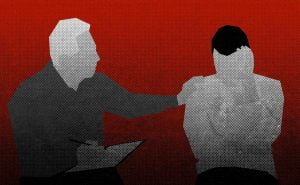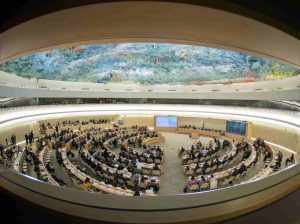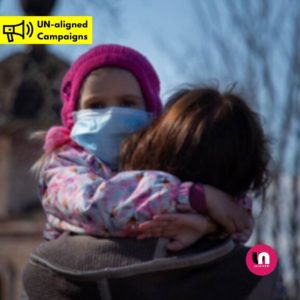On Tuesday morning, a spokesman for Iran’s judiciary confirmed the death sentence of three young men who were participants in the nationwide unrest that swept across the country in November 2019.
The “November protests” started with anger over the government’s decision to increase diesel prices, and soon developed into violent clashes between police and protestors, with many chanting slogans against the Islamic Republic. Protests also echoed concerns over an increasing assault on individual liberties by the Iranian establishment, massive corruption scandals and a dying economy in which many struggle to make ends meet.
The three protestors named Amir Hossein Moradi (25), Majid Rajabi (25) and Saeed Tamjidi (27) have been charged with bizarre indictments such as “arson with the intent to confront and engage in war with the Islamic Republic of Iran” and “enmity against God”. Other more specific charges included participation in vandalism and sending videos to foreign media outlets. Lawyers of the three men have been adamant that their clients only participated in the protests and nothing more.
Their trial has also been described by many as shambolic and unfair. According to reports by the Iranian Human Rights Watch, all cases have been subject to denials of due process, including the refusal to give access to lawyers and family and reports of “confessions” extracted under torture through beatings and electric shocks.
Mostafa Nili, the attorney for Rajabi and Tamjidi tweeted that “So far we have not been given access to the case, but we hope to reverse the verdict with an appeal request.”
Although the final verdict still lies in the hands of the Iranian Prosecution Office, many in Iran fear that the hanging of these men intends to lecture and discourage future protests.
Iran is not only in breach of the ICCPR when denying citizens the right to freedom of assembly, but it also trashes international law by refusing to give those whom it considers as “criminal” the right to legal representation.
Iran’s recent politically-motivated death penalties have increased since the brutal crackdown on protests which took place in more than 100 cities across the country. According to Amnesty more than 300 people were killed, and thousands injured as security forces used unlawful and lethal force.
In 2019, there were over 251 cases involving the death penalty, through hanging, shooting and stoning, with the global number being upto 657 executions in over 20 countries.
We ask international organisations, members of the United Nations General Assembly and individuals to condemn Iran’s violent crackdown on protestors, its use of kangaroo courts and to take appropriate action against Iran’s ever increasing assault on liberty.
At the moment the three men are held in Fashafouyeh prison, in Tehran.
Update, 23 July 2020
Iran has halted the executions of three men who were sentenced to death over anti-government protests last year, according to one of their lawyers.
The decision comes after millions of people, like yourself, used hashtags and signatures to stop their execution.
Iran’s Government must:
Scrap the death penalty for these men at once;Give the men access to legal representation;- Launch an immediate investigation into the torture of the men; and
- Respect Iranian citizens’ right to freedom of assembly.












